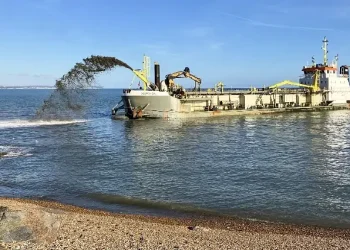Angus Fire has applied to modify its environmental permit to introduce a PFAS treatment plant for rainwater contaminated from historical firefighting foam production at its High Bentham site.
The Environment Agency is running a public consultation from July 24 to August 21, 2025, to assess the feasibility of discharging treated water into River Wenning.
Angus Fire Seeks Permit for PFAS Treatment Plant Near River Wenning
Angus Fire has officially submitted an application to vary its environmental permit, aiming to establish a PFAS treatment plant at its former manufacturing site in High Bentham.
This initiative is designed to address the contamination of rainwater with PFAS, a persistent environmental pollutant, stemming from historical production of firefighting foams.
The proposed treatment facility will focus on mitigating the environmental impact by treating the contaminated rainwater before discharging it into the River Wenning, ensuring compliance with current environmental standards.
Community Invited to Share Ideas on Local Environmental Initiatives
The Environment Agency has initiated a public consultation period, running from July 24 to August 21, 2025, inviting community members and interested groups to provide feedback on the proposed permit variation. This consultation process is crucial for incorporating local environmental concerns into the regulatory review.
Community engagement is seen as a vital component of the environmental permitting process, allowing stakeholders to voice their opinions and concerns about potential impacts on local ecosystems and water quality.
Historic Firefighting Site Targets Contaminated Rainwater Cleanup
The High Bentham site, previously used for manufacturing firefighting foams by Angus Fire until 2020, has been the focus of environmental scrutiny.
The introduction of the effluent treatment plant is a response to past issues, including a 2023 investigation that criticized the site’s wastewater lagoons for potential risks to groundwater contamination.
This new initiative represents a shift from containment to active treatment of pollutants, aiming to remediate legacy pollution effectively and prevent future environmental harm.
Regulatory and Community Challenges in Addressing PFAS Contamination
While the proposed effluent treatment plant is designed to meet current regulatory standards for PFAS discharge, there is ongoing debate about whether these standards are stringent enough to protect public health and the environment adequately.
The case of Angus Fire’s permit application highlights the broader challenges of regulating and remediating PFAS contamination, a notorious issue linked to firefighting foams.
Environmental groups and local communities often push for stricter regulations to ensure safer water quality standards, reflecting a growing concern over the adequacy of existing legal frameworks in handling such persistent pollutants.
Detailed Insights on Angus Fire’s Environmental Initiative
| Category | Detail |
|---|---|
| Permit Application Date | July 24, 2025 |
| Consultation Period | July 24 – August 21, 2025 |
| Proposed Discharge Location | River Wenning |
| Previous Site Use | Firefighting foam manufacturing until 2020 |
| Environmental Concern | PFAS contamination |
| Regulatory Body | Environment Agency |
Proposed PFAS Water Plant Sparks Public Debate Over River Safety
The introduction of a PFAS treatment plant by Angus Fire has sparked a significant public debate regarding the safety of discharging treated water into the River Wenning.
Concerns center around the potential long-term impacts on aquatic life and water quality, emphasizing the need for vigilant monitoring and stringent compliance with discharge standards.
Local residents and environmental advocates are particularly vocal, seeking assurances that the treated water will not adversely affect the river ecosystem, which is integral to the community’s environmental and recreational life.
John Neville Comments on Regulatory Oversight and Public Involvement
“Our regulatory controls are in place to protect people and the environment, and we will carry out a detailed and robust assessment of Angus Fire’s permit variation application. We welcome comments from the public and interested groups on local environmental factors that people feel are important.”
This statement by John Neville, Area Environment Manager at the Environment Agency, underscores the agency’s commitment to thorough regulatory scrutiny and highlights the importance of public input in shaping environmental decisions.
Additional Reading
Sources: UK Government News, ENDS Report, Environment Agency, and UK Government Publications.
Prepared by Ivan Alexander Golden, Founder of THX News™, an independent news organization delivering timely insights from global official sources. Combines AI-analyzed research with human-edited accuracy and context.









